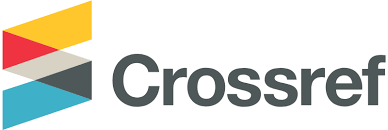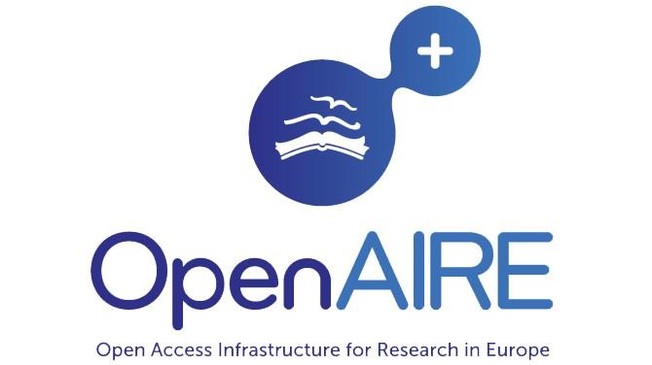IMPLEMENTASI GAME-BASED LEARNING PADA E-LEARNING BERBASIS KASUS PADA MATERI FLUIDA
DOI:
https://doi.org/10.21009/03.1102.PF27Abstract
Abstrak
Dalam pembelajaran fisika sudah dikembangkan berbagai media pembelajaran, salah satunya adalah media pembelajaran berbasis game. Pembelajaran berbasis game dapat digunakan sebagai cara yang efektif untuk menyampaikan inti pengetahuan yang mendasar. Tujuan dari penelitian ini adalah untuk menghasilkan e-learning game berbasis kasus pada materi fluida. Penelitian ini menggunakan metode penelitian R&D dengan model pengembangan ADDIE. Dari penelitian ini, didapatkan data kuantitatif berupa skor dan data kualitatif berupa kritik dan saran. Pada tahap analisis dilakukan analisis litertur, kompetensi dasar, serta identifikasi produk. Pada tahap desain dilakukan dengan membuat rancangan produk yang ingin dikembangkan dan di realisasikan menggunakan website Genially. Hasil dari pengembangan ini berupa game dengan unsur utama yaitu mekanisme, story, dan feedback berupa reward yang berisi kasus yang ada dalam fluida. Kasus yang pertama pada tekanan hidrostatis yaitu kasus kapal KRI Nanggala. Yang kedua untuk kasus hukum archimedes, kasus kapal yang mengapung. Yang terakhir, untuk kasus fluida dinamis, dengan contoh kasus teknik slip stream dalam balapan dan gaya angkat pesawat terbang. Pembelajaran menggunakan kasus akan membantu siswa menghubungkan situasi dunia nyata pada materi fluida dan meningkatkan kesadaran akan konteksnya. Sehingga, e-learning game yang dikembangkan dapat digunakan pada saat menganalisis kasus untuk memahami konsep fluida dalam pembelajaran.
Kata-kata kunci: game-based learning, e-learning, pembelajaran berbasis kasus, fluida
Abstract
Various learning media have been developed for studying physics, for example, game-based learning media. Game-based learning can be an effective way to convey fundamental knowledge. This study aims to create a case-based e-learning game in a fluid material. This research uses the R&D method with the ADDIE development model. This research obtained quantitative data in the form of scores and qualitative data in the form of criticism and suggestions. Literature analysis, basic competencies, and product identification are carried out at the analysis stage. The design stage is done by making a product and creating using genially. The result is a game with three primary elements: a mechanism, a story, and feedback in the form of a reward containing fluid cases. The first case of hydrostatic pressure is the case of the KRI Nanggala ship. The second is for Archimedes' legal case, the floating ship case. For dynamic fluids, slipstream techniques in racing and aviation lift. Learning using cases will help students relate to real-world situations and increase awareness of the context. Thus, the developed e-learning game can be used when analyzing cases to understand the concept of fluid in learning.
Keywords: game-based learning, e-learning, case-based learning, fluid
References
[2] S. E. Smaldino, D. L. Lowther, J. D. Russell, “Instructional Technology and Media for Learning,” London: Pearson, 2014.
[3] Statista, “Number of available gaming apps in the Google Play Store from 1st quarter 2015 to 1st quarter 2021,” Statista, 2021, [Online], Available: https://www.statista.com/statistics/780229/number-of-available-gaming-apps-in-the-google-play-store-quarter/.
[4] H. A. Rosyid, M. Palmerlee, K. Chen, “Deploying learning materials to game content for serious education game development: A case study,” Entertainment Computing, vol. 26, pp. 1-9, 2018.
[5] R. Haryadi, H. Pujiastuti, “The Effectiveness of Using Serious Games to Improve Physics Learning Outcomes in Light Concept,” Jurnal Penelitian & Pengembangan Pendidikan Fisika, vol. 6, no. 2, pp. 153-162, Dec. 2020.
[6] G. Kalmpourtzis, “Educational Game Design Fundamentals A Journey to Creating Intrinsically Motivating Learning Experiences,” Boca Raton: CRC Press, 2019.
[7] M. Gholami, M. Saki, T. Toulabi, P. K. Moghadam, A. H. Pour, R. Dostizadeh, “Iranian nursing students' experiences of Case-Based Learning: A qualitative study,” Journal of Professional Nursing, vol. 33, no. 3, pp. 241-249, 2016.
[8] S. DEMİRCİOĞLU, G. S. SELÇUK, “The effect of the case-based learning method on high school physics students' conceptual understanding of the unit on energy,” Asia-Pacific Forum on Science Learning and Teaching, vol. 17, no. 2, pp. 1-25, 2016.
[9] M. Bi, Z. Zhao, J. Yang, Y. Wang, “Comparison of case-based learning and traditional method in teaching postgraduate students of medical oncology,” Medical Teacher, vol. 41, no. 10, pp. 1124-1128, 2019.
[10] Genially, “Why Genially,” Genially, 2015, [Online], Available: https://genial.ly/why-genially/.
[11] D. Muliyati, R. Milenia, R. Fahdiran, “Elektrotektif’: An Educational Game to Explore Electricity Concept Using Case-Based Learning,” Jurnal Penelitian & Pengembangan Pendidikan Fisika, vol. 8, no. 2, pp. 283-292, Dec. 2022.
[12] Sugiyono, “Metode Penelitian kuantitatif, kualitatif, dan R&D,” Bandung: Alfabeta, 2013.
[13] M. Yusuf, “Metode Penelitian Kuantitatif, Kualitatif, dan Penelitian Gabungan,” Jakarta: Kencana, 2014.
[14] Samsu, “Metode Penelitian: (Teori dan Aplikasi Penelitian Kualitatif, Kuantitatif, Mixed Methods, Serta Research & Development),” Jambi: Pusaka, 2017.
[15] D. Elkins, D. Pinder, “E-Learning Fundamentals A Practical Guide, Alexandria VA: ATD Press,” 2015.
[16] S. H. Yang, “Development of a Game-Based e-Learning System with Augmented Reality for Improving Students’ Learning Performance,” International Journal of Engineering Education, vol. 2, no. 1, pp. 1-10, 2020.




